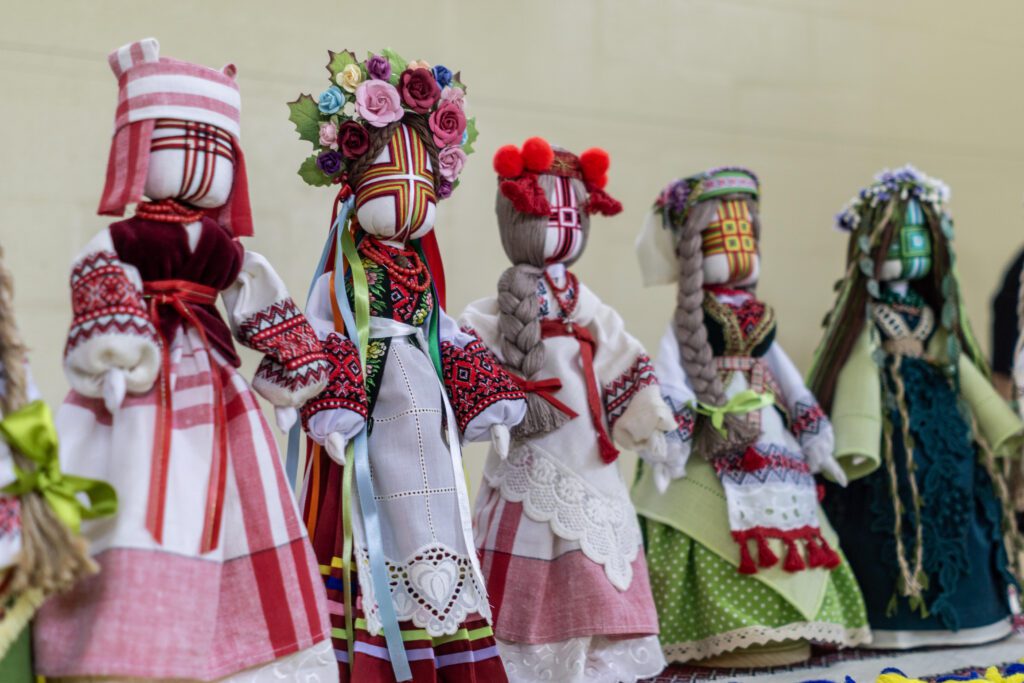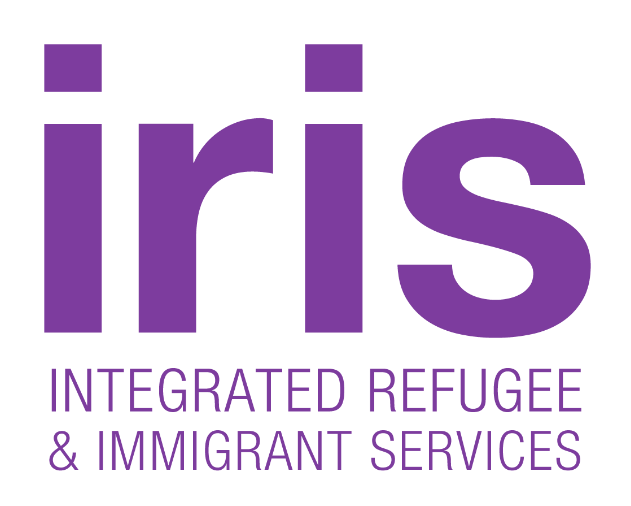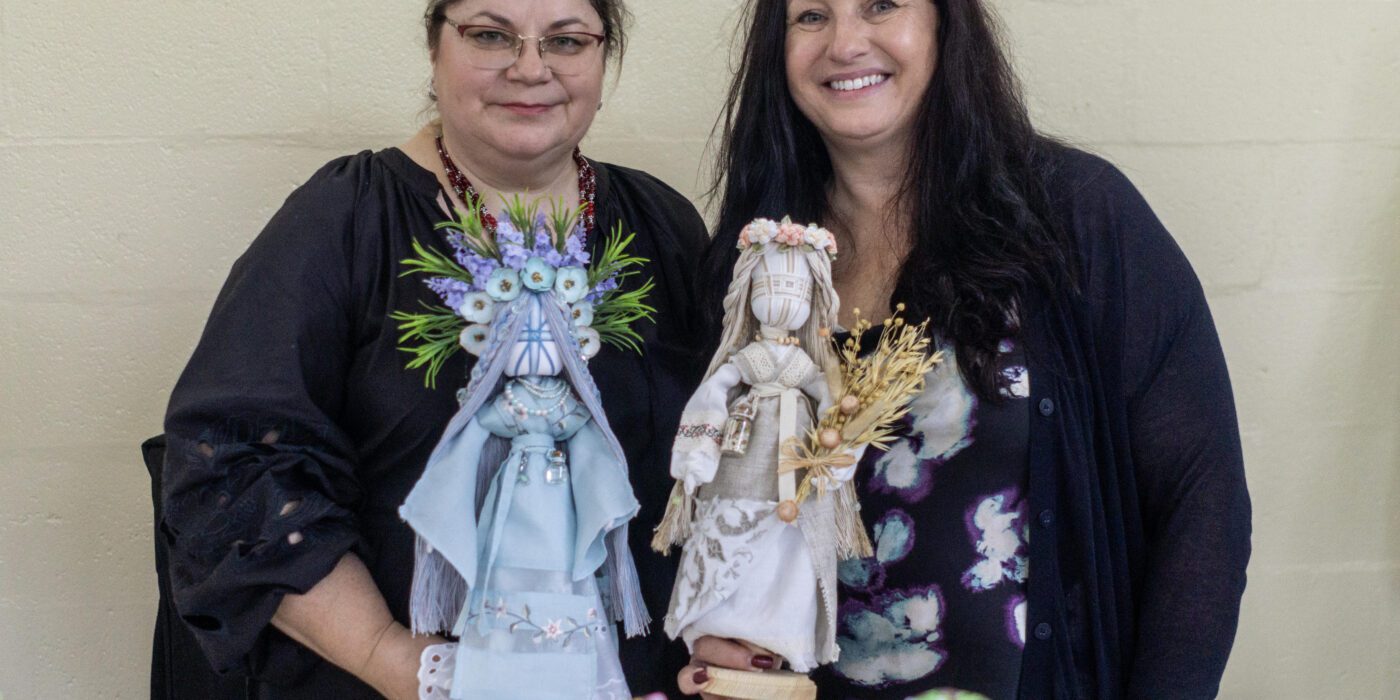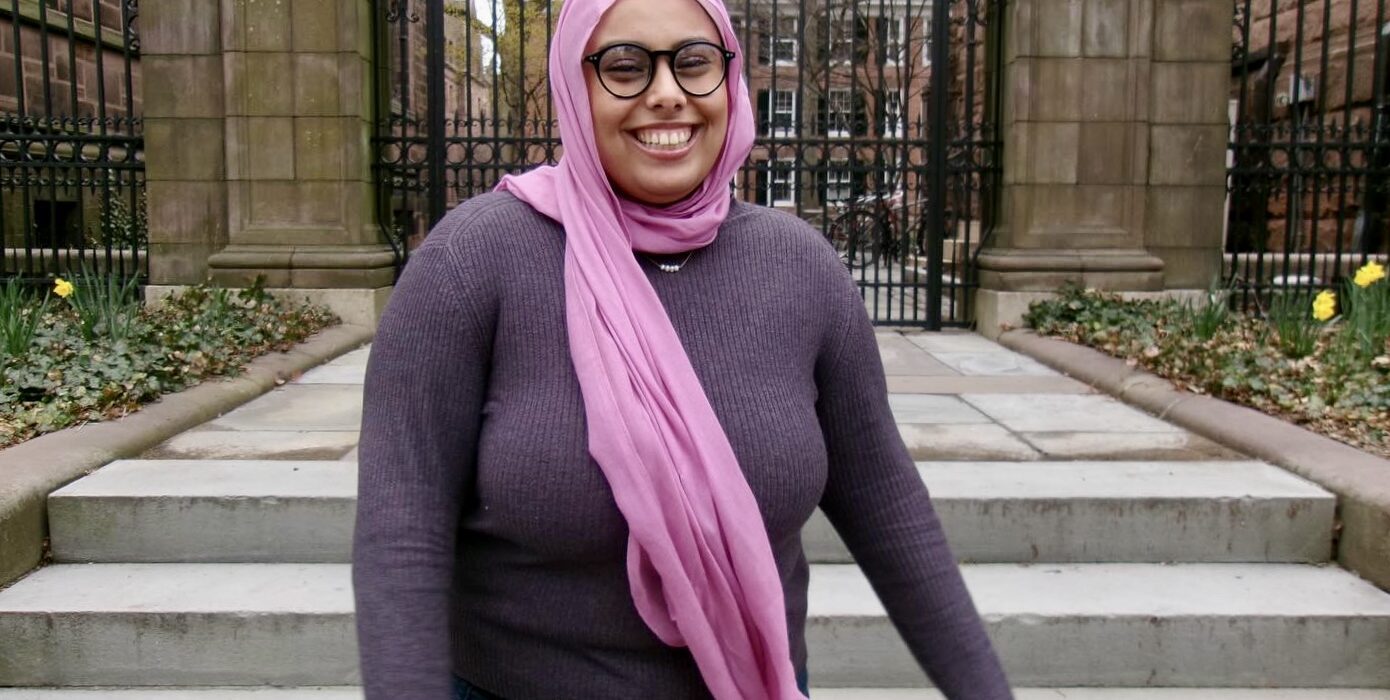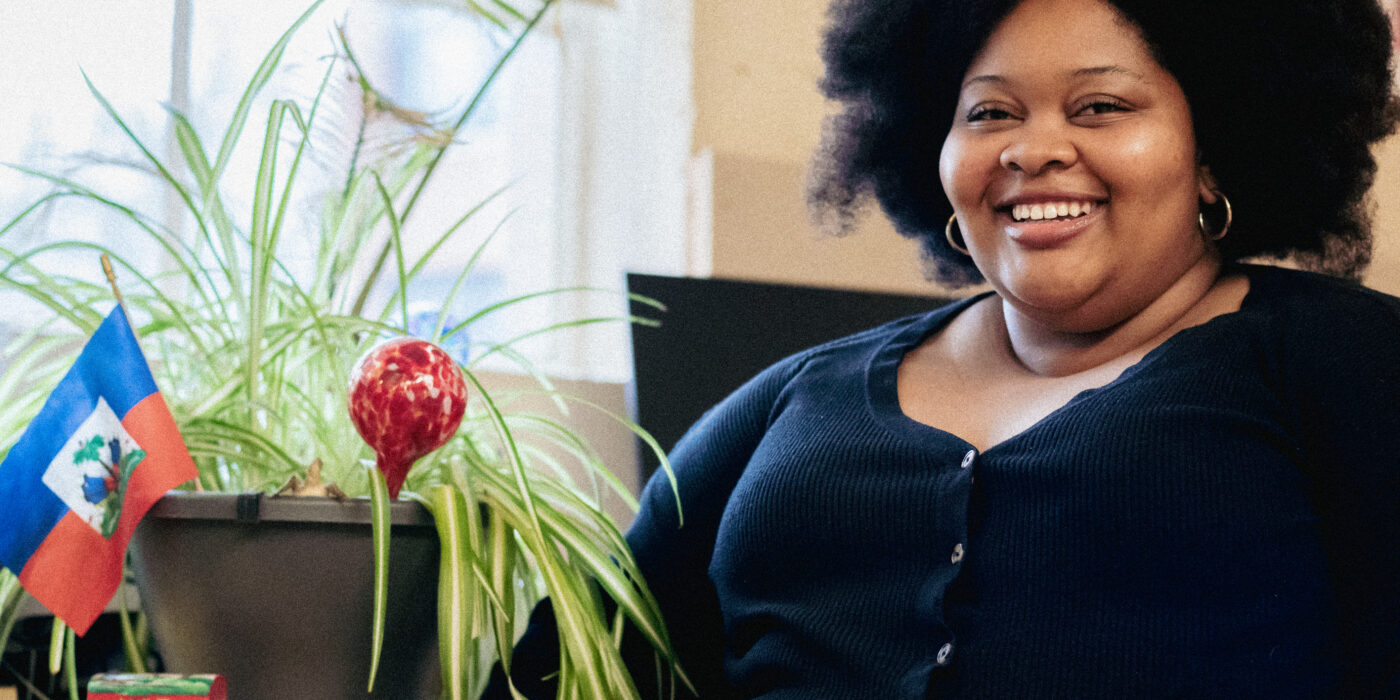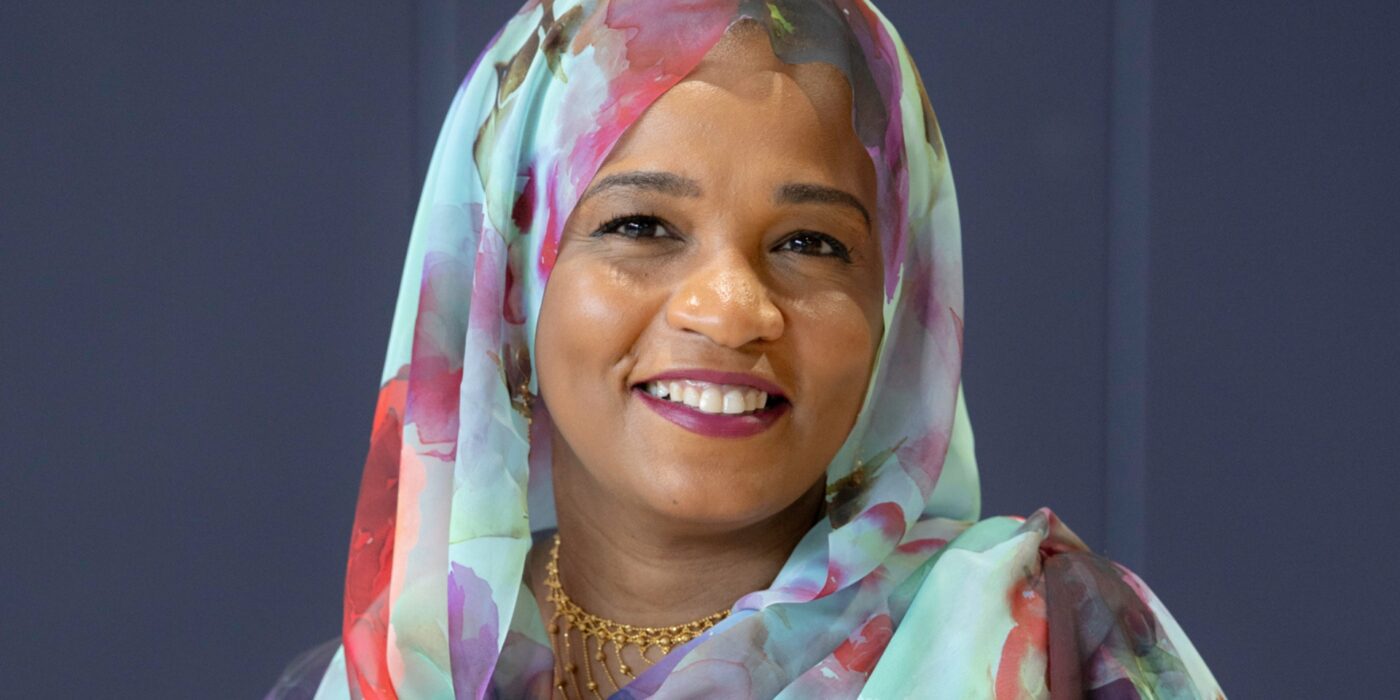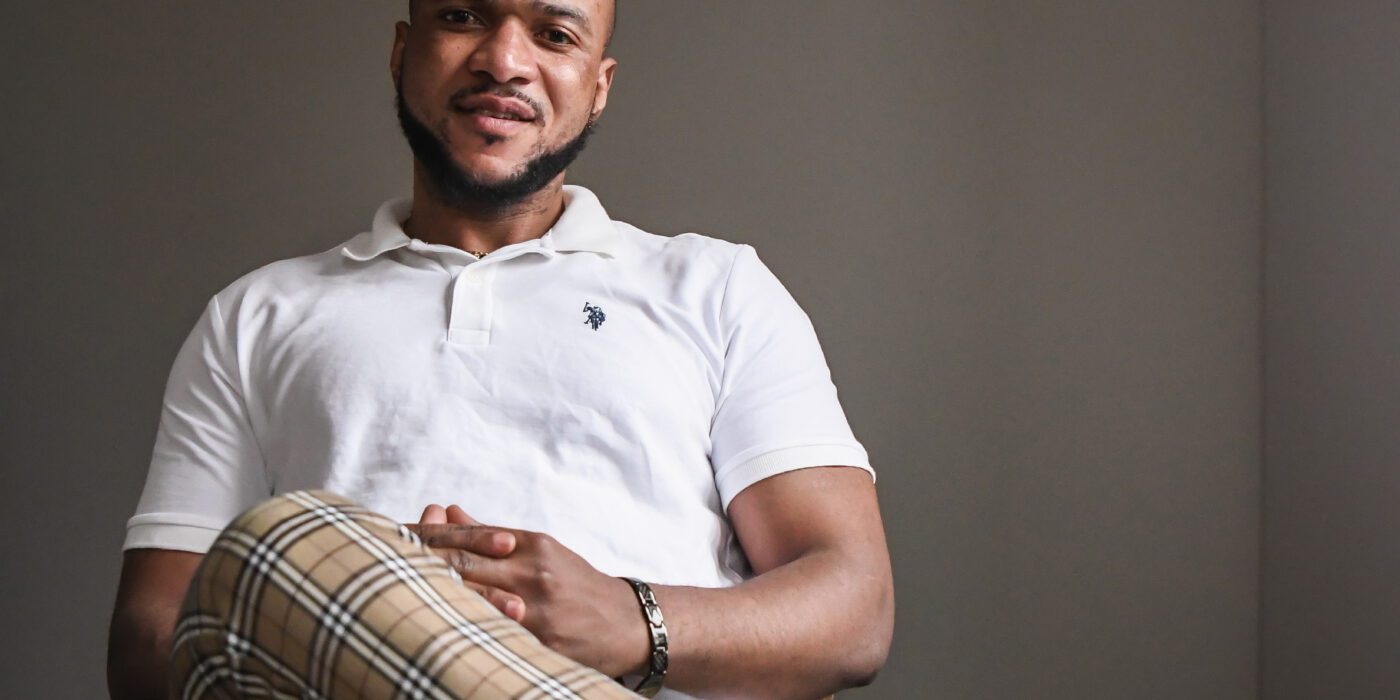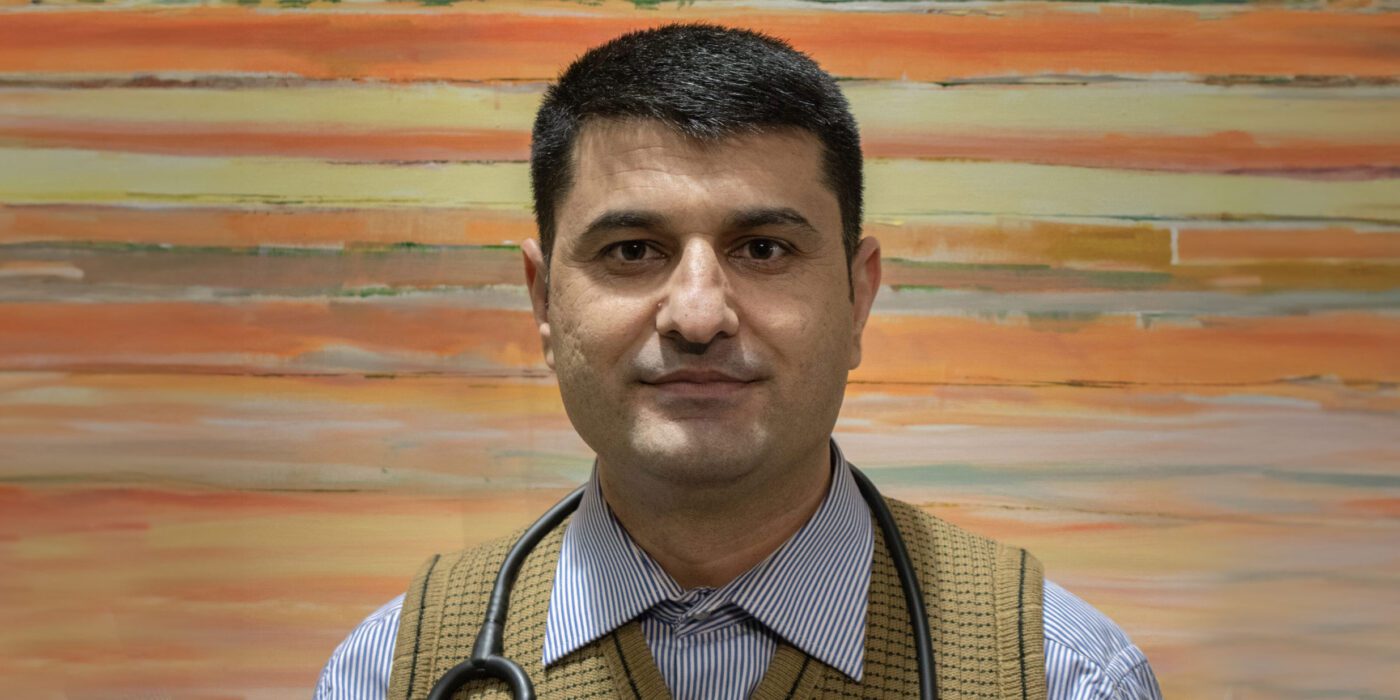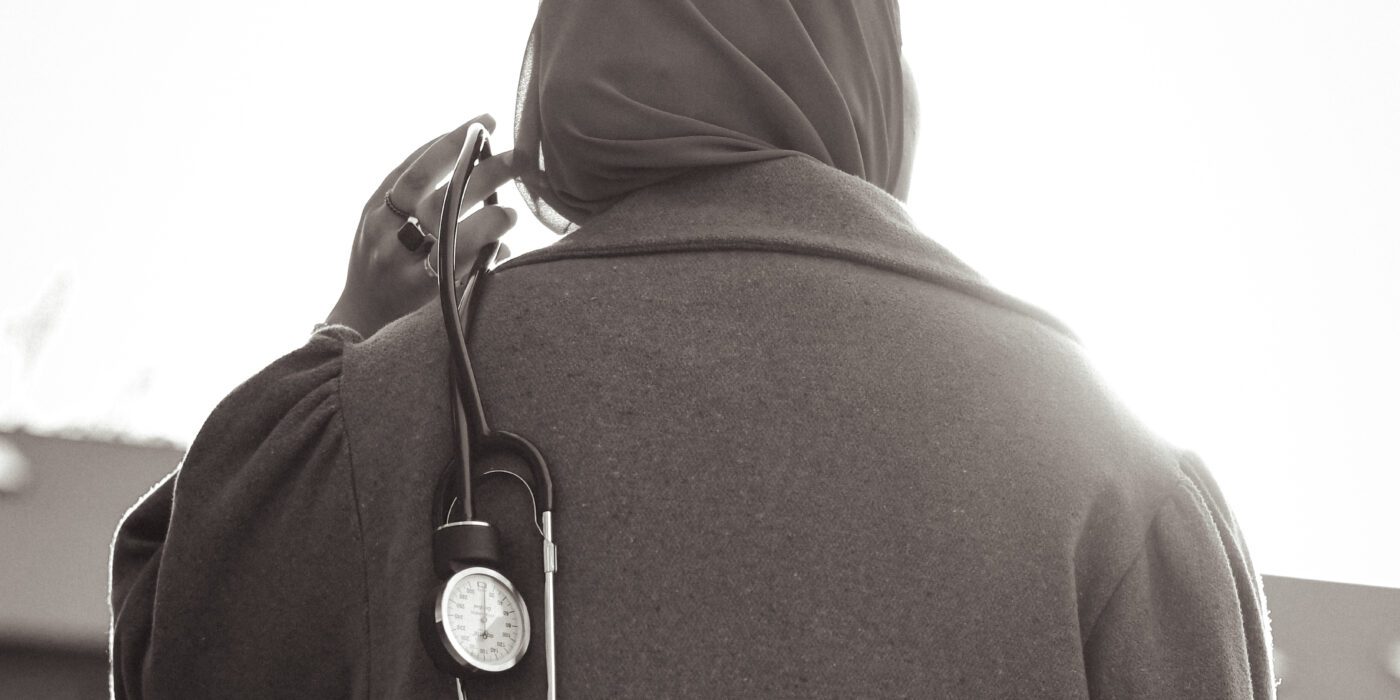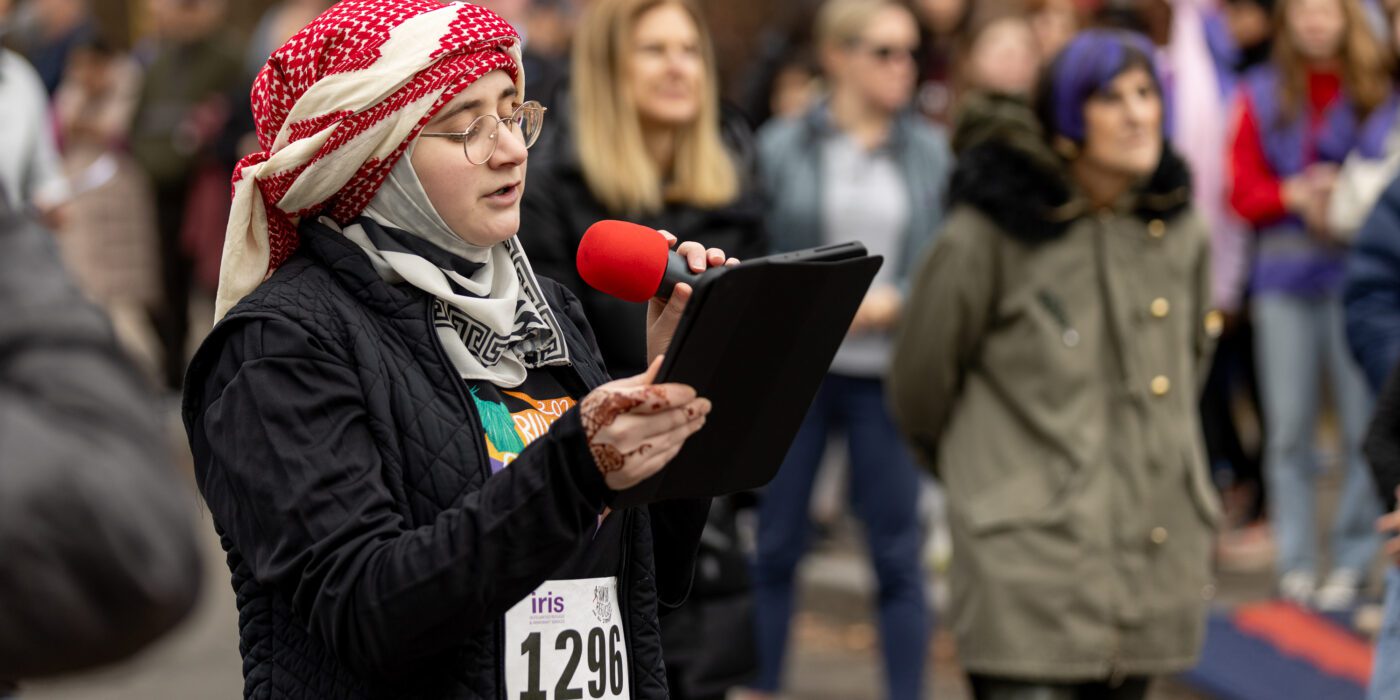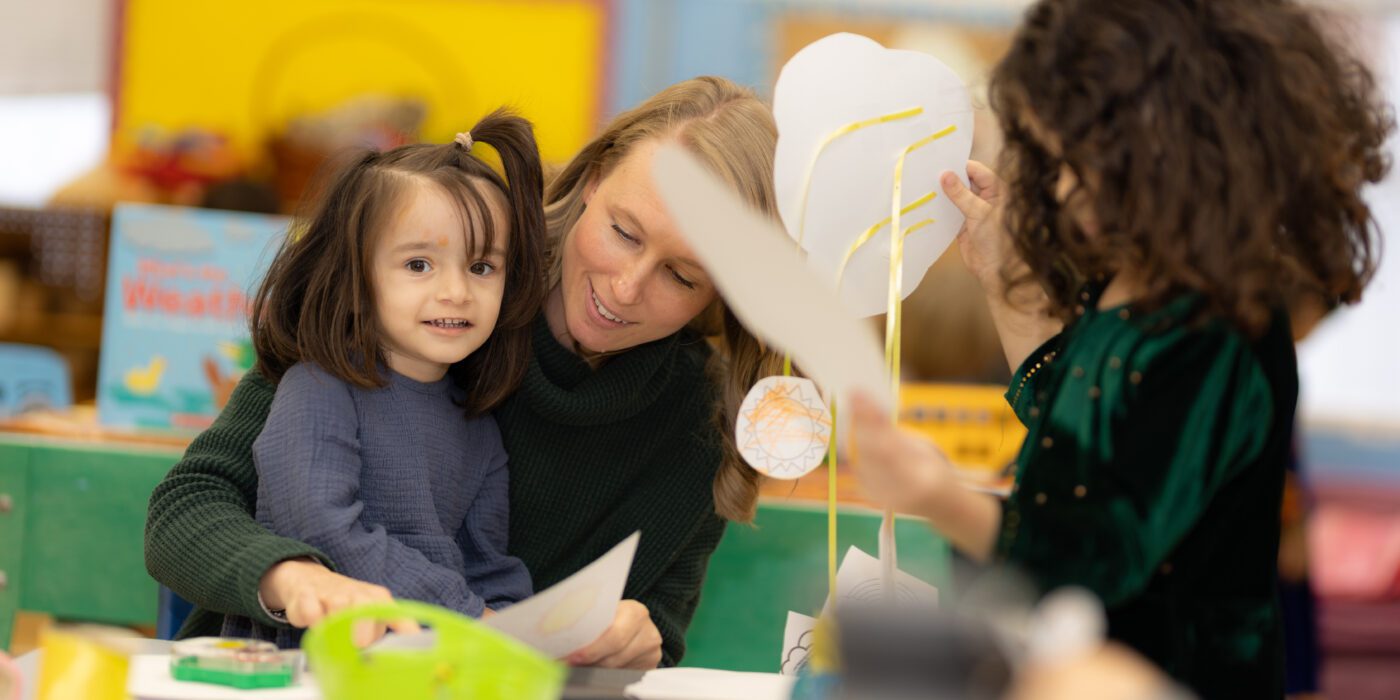By John Curtis
On an evening in mid-October, Chris George was addressing about 35 students at the Yale School of Public Health. His talk, part of a seminar series at the school, melded his life story—years spent in the Middle East and in the United States with American Friends Service Committee, Save the Children, Human Rights Watch, and other NGOS—with his 18-year tenure as director of Integrated Refugee and Immigrant Services in New Haven.
He drew the students into his presentation with role-playing, handing out scripts and asking them to portray a Syrian refugee family, State Department officials, FBI agents, and landlords. And he discussed his own visits to refugee camps in Afghanistan, Gaza, Lebanon, Pakistan, Turkey, and the West Bank.
“What I remember most from those visits to refugee camps is probably not what you’d think,” he told the students. “Row after row after row of tents, the horrible stench of raw sewage, or the look of pain, suffering, depression, loss on the faces of refugees. All that was there. What had the most profound, lasting impact on me was the incredible hospitality of the refugees who’d lost so much. I was coming from the wealthiest, most powerful country on earth, and they gave me the blessing of their generosity. They found a chair for me to sit on, they put on a pot of water for tea or coffee, they would give money to their oldest son and have him run down to the corner store and buy a pack of cookies. I would sometimes say when I was sipping tea or cardamon flavored coffee, if you ever come to the United States, please look me up. I want to show you the hospitality you’ve shown me. As fate would have it, years later in 2005 I was hired to run a refugee resettlement agency. Our mission was to welcome refugees and get them off to a good start.”
After 18 years leading IRIS, George is retiring. Since he was hired in 2005 at what was then called the Interfaith Refugee Ministry, IRIS has grown from an eight-person office in a converted apartment in Wooster Square with a budget of $500,000. Staff now numbers almost 200 and the budget exceeds $12 million. From an average of 200 refugees and immigrants resettled each year, it now resettles 1,000. It has expanded services beyond the basic needs of housing, education, jobs, and health care. IRIS offers, among other services, legal advice, an after-school program, and an expanded job program. IRIS recently opened a satellite office in Hartford.
What put IRIS on the national radar and made it a model for resettlement agencies around the world, however, is its co-sponsorship program. Since the Syrian refugee crisis of 2015, IRIS has increased its partnerships with community and faith groups around Connecticut. About 100 such groups take on the tasks of sponsoring a family, finding and furnishing an apartment, and helping them find jobs, health care, and schools for their children. IRIS staff hold workshops on this model and have trained staff at other agencies around the country. IRIS is also part of a consortium of organizations supporting the Welcome Corps, an initiative the Biden Administration launched in early 2023 to encourage community groups to engage in refugee sponsorship.
“Chris is probably the single most important person in the United States when it comes to having evangelized refugee sponsorship,” said Gregory Maniatis, director of the Office of the Vice President for Global Programs at the Open Society Foundations. The foundations have supported IRIS for about five years with direct and indirect grants. “The refugee system had been built in a professionalized way that excluded communities in terms of their meaningful engagement. Chris understood that the idea of community sponsorship addresses both the needs of communities and the needs of refugees. The critical work that IRIS did in 2016 and 2017 created confidence among all of us who championed the idea that this was possible.”
George leaves IRIS with a legacy as a national model that has offered a new approach to refugee resettlement.
“When he joined IRIS in 2005, he transformed it from a little-known local organization into a national standard-bearer,” said U.S. Representative Rosa DeLauro in a statement. “He made IRIS into the organization it is today, and it will continue to help refugees in the community because of the legacy that he is leaving behind.”
“No matter the circumstances around the globe, Chris and his team jumped into the fray with open arms to help people fleeing persecution and violence find shelter and safety in Connecticut,” said Senator Richard Blumenthal of Connecticut. “His impact has been far-reaching and life changing for so many families and I wish him all the best in his well-deserved next chapter.”
When IRIS started working with co-sponsors George never imagined it would take on national prominence. “We were just thinking about how it could improve refugee resettlement in Connecticut,” he said.
George’s path to refugee resettlement begins in Montclair, N.J. His father, a first-generation immigrant from a Greek family, had moved there for his job in New York as managing editor for ABC radio news. All ABC news broadcasts were transmitted to his house and George grew up immersed in his father’s conversations with editors and reporters.
One summer, while he was in high school, George spent a summer on an archaeological dig in England. He enjoyed it so much that he majored in anthropology and history at the University of Pennsylvania. In college, he took time off to work in a kibbutz in Israel and after graduation he followed his older sister into the Peace Corps. George landed in the antiquities ministry in the Sultanate of Oman. With his background in archaeology and anthropology, he said, “I was a shoo-in.”
After two years he returned to Philadelphia and took on teaching jobs until the American Friends Service Committee hired him to work in Lebanon. It was 1982, just a few months after the Israeli invasion against the Palestine Liberation Organization.
“It was wild,” he recalled. “There were gun battles almost every day. There we were, young, relatively naïve Americans trying to do some good, mostly housing reconstruction. Also some human rights monitoring, just watching what was going on and reporting back to the American Friends Service Committee.”
His next job took him to Gaza for Save the Children in 1985. He stayed for five years and was the first aid worker to be kidnapped there. His kidnapper was a Palestinian militant who had served time in an Israeli prison and given up arms to become a community leader. During an uprising against Israel he took up arms again.
“I knew him before he kidnapped me because he had come into the Save the Children office talking about building a kindergarten in his refugee camp,” George said. Save the Children gave him $1,000 for a fence around the kindergarten.
George’s kidnappers released him after 36 hours. Their bizarre plan was that his abduction would somehow make George famous, and he would use his celebrity to generate sympathy for the Palestinian cause. A week after the kidnapping, the militant was killed by Israeli authorities.
In 1990 George returned to the United States to work with Save the Children at their Connecticut headquarters. Five years later he took a job with Human Rights Watch. He worked on planning and fundraising but hankered for fieldwork.
After the Oslo Accords, which called for a two-state solution, were signed in 1993, George said, there was interest in working with the new Palestinian Authority. “They held their first free and fair election, the Palestinian parliament was elected, and the United States and other governments wanted to see it succeed.”
George took a job with an international consulting group, Associates in Rural Development, whose portfolio included civil society and democracy programs and had a contract with the U.S. Agency for International Development to strengthen the new Palestinian parliament. George and his family lived in Jerusalem, and he commuted every day to Ramallah in the West Bank.
“We would bring experienced parliamentarians or people from state legislatures to work with Palestinian members of the council and their staff to learn how a strong legislative body works,” George said. “We gave them training in how to draft laws, how to conduct oversight hearings, help them learn best ways to do constituent relations.”
In 2004, George and his family returned to Connecticut. While living in Jerusalem, his wife had completed medical school and secured a residency at a hospital in Middletown. George had more time with his wife and three children while looking for a job. He also began observing the state legislature in Hartford. “I was coming off this legislative strengthening job and my attitude had shifted from seeing politics as a necessary evil, to maybe being not so necessarily evil.” He also “dabbled in voter registration work” and wrote op-eds for the Hartford Courant.
Then a mutual friend introduced him to Lee Cruz, director of community outreach at the Community Foundation for Greater New Haven. Cruz had returned a few years earlier after extended work abroad. Cruz had been in Leon, Nicaragua, working with the New Haven Sister City project on education, community and economic development, and agriculture.
“A year later I heard that Interfaith Refugee Ministry was looking for a new director,” Cruz said. “Chris was looking for work and I called him and strongly suggested that he apply for this job. I wasn’t intimately familiar with the agency, but I am familiar with the struggles of migrants, immigrants, and refugees and the need to have someone visionary in a job like that. I remember talking to him and sensing that energy, that passion that drove him. He applied, he got it, and I’ve watched him grow that organization just beyond comprehension.”
“I was intrigued, did some research, and was surprised to learn that the U.S. government has this refugee resettlement program and they do it through nonprofits,” George said. “I knew that refugees were coming to the United States, but I didn’t know anything about how it worked.”
What he learned was that the U.S. Department of State works with a group of nonprofits, now 10, including Church World Service and the International Rescue Committee. They, in turn, subcontract the resettlement work to about 300 agencies like IRIS around the country. The agencies receive payments for each person they resettle–half of which goes to the refugees and half stays with the agencies to support their services.
George talked with Cruz and other New Haveners and found few who’d heard about the refugee ministry. “It was really surprising how unknown this organization was. It had been around since 1982.”
The organization had just completed a strategic planning process, including the search for a director, and wanted to make dramatic changes. Those included a new name and, though initially a project of the Episcopal Social Services of Connecticut, becoming a secular organization.
“When I first went into my office on Wooster Square, there was a crucifix hanging on the wall of my office,” George said. “I very respectfully removed it and replaced it with a poster of Albert Einstein, who was a refugee.”
Despite concerns over losing the support of the faith community, George said, “We did not lose any support from the churches. In fact, churches were thrilled that we were becoming more inclusive and attracting people from other faiths and secular organizations.”
Another major change was to provide more than basic needs of housing, education, jobs, food, cultural orientation, and health care. “The typical refugee resettlement agency will provide basic startup services for refugees because that’s all the federal grants will pay for,” George said. “I realized that providing just enough for the minimum level of services did damage to refugee resettlement. It did not force the nonprofit groups involved in refugee resettlement to raise private funds. The impact of that is that most refugee resettlement agencies were not forced to develop partnerships with other organizations. They were not forced to recruit a lot of volunteers. They didn’t have to raise their profile and do a lot of PR work with journalists. They didn’t have to do public events, they didn’t have to speak at schools and universities and do a lot of public outreach. None of that was necessary because they had just enough money from the federal government to do just what the federal government was requiring them to do.”
George saw a need for better housing, help beyond just enrolling kids in school, longer term health care assistance, legal services to reunite families and help them apply for green cards and citizenship, and more help with employment. The federal allotment that IRIS and families receive for resettlement is the same throughout the country. So a family settling in a high-cost state like Connecticut receives as much as a family in a more affordable state like Alabama or Kentucky. “It was not enough to do a good job of welcoming and resettling refugees in Connecticut.”
On his appointment in 2005 IRIS applied for private grants and boosted its fundraising efforts. The agency jettisoned its policy of keeping under the radar and began welcoming press coverage and expanded its outreach.
“Whenever we were asked to speak at an event we always said yes,” George said. “We gradually raised our profile, got more publicity for our work, attracted more attention, and raised more public funds and were able to help more people, develop more programs, hire more staff. The lesson is that all of this is connected—a robust volunteer program, public education, working with the press, developing a community sponsorship program, and raising our standards.”
Kelly Hebrank arrived at the Interfaith Refugee Ministry through an AmeriCorps fellowship a few months before George was hired and worked off and on at IRIS for most of the next 15 years. “I did a million things. I was program manager without reference to what program I was talking about,” recalled Hebrank, who now teaches English as a Second Language in the New Haven Public Schools. Among her duties were working as health care coordinator, finding apartments, fundraising, community development, and, for a while, deputy director.
Anyone who works at IRIS can expect to see their job description change in a heartbeat. “Even if your title doesn’t change, you often take on new responsibilities,” said Barbara Davis, a founding member of Danbury Area Refugee Assistance (DARA), which has settled three families. “That’s evidence of everything growing and changing so quickly,” said Davis, who now works at IRIS as a community sponsorship developer. “Being able to pivot is important.”
That staff flexibility was a function of being a small staff, without the hierarchy of larger organizations. “It was lots of case managers and Chris,” said Hebrank, “so he knew about every crisis, he knew about every family and what kind of job they were looking for, and he would do anything he could to help.”
George, she said, was ambitious in his vision of what could be accomplished, sometimes to the consternation of staff. “His philosophy was do it and see how it goes. To be honest, that can be challenging from a resource perspective. Do we have the funds for this? But Chris doesn’t want to wait around, he just wants to see if it works.”
In its early days, IRIS’s co-sponsorship program was not working. “It was spinning its wheels,” George said. His predecessor, he noted, had advised him to keep resettlement in-house and ask faith communities to support IRIS with donations. “But the more I spoke with people who had been involved in sponsorship, the more I realized that when it worked well, it was spectacular.”
Instead of a single case manager, refugee families have a cadre of volunteers in their community. Volunteers took satisfaction in their work and learned about the refugees, their home countries, and the crises that had caused them to leave. Despite that enthusiasm, George realized better training was needed so IRIS established an application process for co-sponsors and initiated training and oversight protocols. “I felt that this was a program that we could improve, and it would not only be a great way to resettle refugees, but it would build public support. It would help people learn about refugee resettlement and they would become lifelong supporters of a U.S. government refugee resettlement policy.”
Before the 2015 Syrian crisis, said Hebrank, perhaps one or two community or faith groups would sponsor a family each year. “With the Syrian crisis there was so much more interest and a whole lot more groups came on board,” she said. “It was a huge change to say it doesn’t have to be a church. That was the launching pad for the current co-sponsorships.”
During the Syrian refugee crisis of 2015 Davis got involved with DARA, the Danbury resettlement co-sponsor. “Back then four core members of our group were required to go to IRIS for a half-day of training,” she said. “The training was very good, but it wasn’t as comprehensive as it needed to be, and IRIS was the first to say we need to make this a full day. As they launched a brand-new program, they would evaluate it, they would ask for our feedback, and if there was something that needed changing, they would do their best to make it work.”
George, she said, was an integral part of training and was available to solve problems that surfaced. George and case manager Greg Marino helped when one family had an issue with their landlord. “When things get tough, you aren’t left to fend for yourself. You have the experience of IRIS to get you through those tough circumstances.”
New Haven Mayor Justin Elicker recalled George seeking his help when he was on the city’s Board of Alders. Two Iraqi refugee families who had resettled in a building in his ward in New Haven’s East Rock neighborhood were having problems sharing their backyard. “I went to IRIS and talked about how we worked through conflicts in regard to shared space, which is different than living arrangements typical in Iraq, according to Chris. It was a lively conversation as I recall.”
The city, he said, works with IRIS to integrate refugee children into public schools and to emphasize shared values as a community that welcomes everyone.
“IRIS played a big role in responding, after Trump got elected, to the Muslim ban and just being a voice of compassion and reason amidst a lot of divisive rhetoric and policies in the nation,” Elicker said. “You see that in the day-to-day work that IRIS does. You also see that in the participation in the Run for Refugees which has just exploded since 2017 when Trump got elected.”
The annual Run for Refugees, a main IRIS fundraising event that began in 2007, saw participation jump from an average of 1,000 to 3,000 after Trump’s election. IRIS survived the decimation of the national refugee resettlement network during the Trump presidency, George said, through donations that kept it afloat. Despite a deep drop in federal funding because of a reduced influx of refugees, IRIS managed to continue advocating its co-sponsorship model.
By 2018, that model was on such sound footing in Connecticut that, with funding from the Open Society Foundations, IRIS brought members of 19 resettlement agencies around the country to New Haven for a workshop on the history of co-sponsorship and the nuts and bolts of launching a program. Nevertheless, co-sponsorship remains controversial in the national resettlement community.
“They had very specific business models that stressed the importance of professional resettlement,” said Maniatis of the Open Society Foundations. “Chris was not only a visionary in thinking of that model as past its due date but was also willing to take on the refugee establishment in the United States and advocate for the idea of community-based resettlement. Others were doing a version of this but no one else did it at the level of professionalism and scale that Chris did at IRIS. By the end of 2016 he had 50 or so co-sponsorship groups across Connecticut that looked very much like what the sponsorship model is today.”
George believes resistance to co-sponsorship is rooted in the notion that the work must be done by professionals.
“They don’t feel that volunteers can be trusted,” he said. “So what we say in our training is look at the tasks we’re asking you to do: find apartments, furnish apartments, enroll kids in school, help somebody get a job, help somebody learn English, drive people to their healthcare appointments, help them understand their medical bills, help them read their electricity bills. These are things that anyone over 30 has done, that those of us who are over 40 or 50 have done multiple times. And you know the community—where the schools are, where to catch the bus, where to find the Stop and Shop.”
Among those helped by IRIS are Mashair Elnaw and her husband Abu Mohamed-Ali. Although they had come to the United States from Sudan after being sponsored by family in West Haven, they turned to IRIS for help a few months after arriving with their four children in March 2018. Their relatives supported them financially at first, but they still needed help. Then a Sudanese friend told Elnaw about IRIS.
“I went immediately to IRIS, and I met with [case manager] Linda Bronstein. Linda said, ‘Don’t worry Mashair, I promise I will help your family,’” Elnaw said.
Although the family was not an IRIS client, Bronstein found funding to help with rent, medicine, clothing, and food. “They really had the same kind of needs all our refugee clients have, so we did what we could,” Bronstein said.
Now Mohamed-Ali works in an Amazon warehouse, Elnaw is a part-time chef at the University of New Haven, and all four children, ranging in age from 10 to 16, are in school. Lena, 16, is a high school junior who’s thinking about going to college to major in biomedical engineering. Two years ago the family bought a home in West Haven. “I love the American people because they support the people when they need help,” Elnaw said.
On a night in mid-November, George was waiting in his office at IRIS for two families arriving from abroad. The first, a family of four from Afghanistan, came at about 8 p.m. Waiting with him to greet the family—mother, father, 10-year-old son, and an infant boy—were several family members already settled in Connecticut, including the wife’s brother and other relatives connected by marriage.
When George learned the family would be living in neighboring Woodbridge, he Googled the address and suggested that the man—the only one to speak English—look for a job at a nearby restaurant. He leaned over to the 10-year-old boy and said, with relatives translating into Pashto, “A year from now you’re going to come back here and you’re going to speak better English than me.”
After the family set off for their apartment in Woodbridge, George returned to his office and reflected on his time at IRIS and this new chapter in his life.
He wants to spend more time with his three children and two granddaughters. One of his daughters is a second-grade teacher at an international school in Oman. Another daughter is a reporter in Dubai covering the Middle East for the Washington Post. And his son is a filmmaker in Brooklyn, N.Y.
He’ll also be working in a still undetermined role with Welcome Corps but doesn’t want a management job. “I’d like to do community presentations,” he said, ideally within driving distance of New Jersey, where he now lives.
He sees his legacy at IRIS as the growth of co-sponsorship, which he believes is an integral, essential element of refugee resettlement.
“We promote Welcome Corps, and we promote community co-sponsorship for two reasons. It can increase the capacity. By engaging volunteers, we can bring more refugees to this country and save their lives. And it builds public support. So when I look back, that’s what I’m most proud of, the impact that that has had nationwide.”
